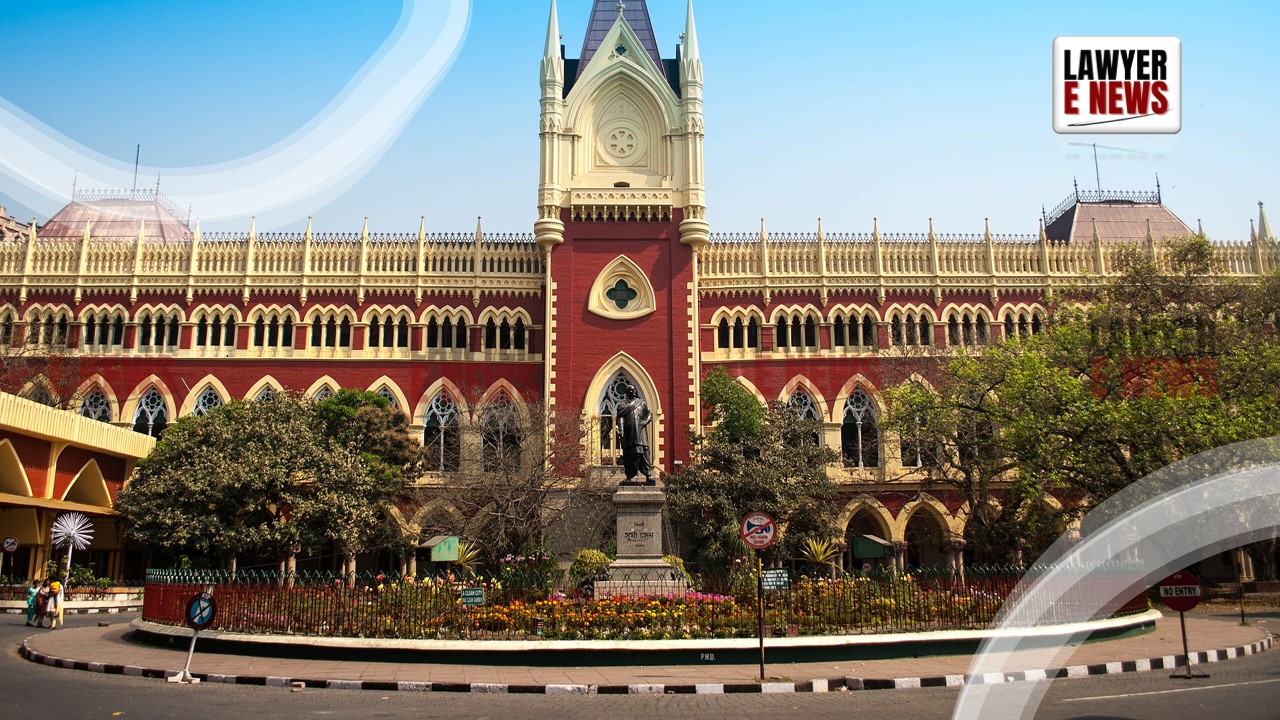-
by Admin
15 February 2026 5:01 PM



A Writ Petition Against a Show Cause Notice Under GST Law is Not Maintainable Unless the Notice is Without Jurisdiction or Ex-Facie Perversity is Demonstrated - In a notable judgment, the Calcutta High Court dismissed a writ petition filed under Article 226 of the Constitution challenging a Show Cause cum Demand Notice (SCN) issued under Section 74 of the Central Goods and Services Tax Act, 2017 (CGST Act) and West Bengal Goods and Services Tax Act, 2017 (WBGST Act). The petition alleged wrongful availment of Input Tax Credit (ITC) on supplies from unregistered or non-existent suppliers.
The Court held that a writ petition against a show cause notice is not maintainable unless the notice is wholly without jurisdiction or patently perverse. Procedural grievances, including the alleged non-consideration of replies, must be addressed during the statutory adjudication process.
The petitioners, M/s Jyoti Tar Products Private Limited & Anr., received a Show Cause cum Demand Notice (SCN) dated August 8, 2024, under Section 74 of the CGST/WBGST Acts. The SCN demanded a total of ₹36,04,552/- (₹18,02,276/- CGST and an equivalent amount of WBGST) for allegedly availing ITC on supplies from suppliers who were later found to be unregistered or non-existent.
Whether a writ petition challenging a show cause notice under Section 74 of the CGST/WBGST Acts is maintainable.
Whether the SCN was issued in violation of principles of natural justice.
Whether the retrospective cancellation of suppliers’ GST registrations invalidates the transactions or absolves the buyers from liability under Section 16 of the GST Acts.
The Court reiterated the principle established in Special Director v. Mohd. Ghulam Ghouse [(2004) 3 SCC 440] that:
“A writ petition against a show cause notice should not ordinarily be entertained unless the notice is issued wholly without jurisdiction or is ex-facie perverse.”
The Court found that the petitioners had failed to demonstrate any jurisdictional error or perversity in the issuance of the SCN. The SCN merely initiated the adjudication process under Section 74 of the CGST/WBGST Acts, which provides adequate opportunity for the petitioners to present their defense.
The Court observed that the petitioners' claim of non-consideration of their reply to Form GST-DRC-01A did not amount to a violation of natural justice. Under Section 74(1), the issuance of an SCN is mandatory if the taxpayer fails to pay the amount intimated in Form GST-DRC-01A.
“Procedural grievances, including non-consideration of replies to pre-SCN intimations, can be effectively addressed during the statutory adjudication process under Section 74(9).”
The Court rejected the argument that the retrospective cancellation of suppliers' GST registrations absolved the petitioners of their obligations under Section 16 of the CGST/WBGST Acts. The Court emphasized that buyers must ensure compliance with conditions for availing ITC, including verifying the authenticity of suppliers.
Relying on the CBIC Press Release dated May 4, 2018, the Court noted that while recovery of unpaid taxes should primarily be initiated against defaulting suppliers, this does not provide blanket immunity to buyers. Buyers are still required to meet their obligations under Section 16, and non-compliance can lead to reversal of ITC.
The Court found that the issuance of the SCN did not violate principles of natural justice. The adjudication process under Section 74(9) provides taxpayers with an opportunity to raise all defenses. The Court held that bypassing this statutory mechanism through writ jurisdiction was impermissible.
The Court clarified that the CBIC Press Release dated May 4, 2018, does not absolve buyers from verifying the conditions for availing ITC. It merely states that recovery actions should primarily be initiated against suppliers, but this is not a substitute for statutory compliance under Section 16.
The SCN was neither without jurisdiction nor ex-facie perverse.
Procedural grievances could be effectively addressed during the statutory adjudication process under Section 74(9).
Retrospective cancellation of suppliers' GST registrations did not invalidate the transactions or absolve buyers of their obligations under Section 16 of the GST Acts.
“The statutory framework under the GST Acts provides sufficient opportunity for taxpayers to raise their defenses during the adjudication process, and bypassing this mechanism through writ jurisdiction is impermissible.”
The petitioners were directed to participate in the adjudication process.
This judgment reinforces the principle that writ jurisdiction cannot be invoked to challenge show cause notices under GST law unless jurisdictional errors or ex-facie perversities are demonstrated. Taxpayers must adhere to the statutory adjudication process and address procedural grievances during the course of proceedings. The ruling also emphasizes buyers’ obligations to verify compliance with ITC conditions, even in cases involving retrospective cancellation of suppliers' GST registrations.
Date of Decision: December 13, 2024
